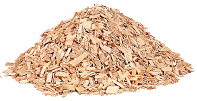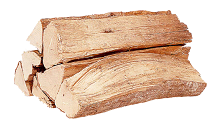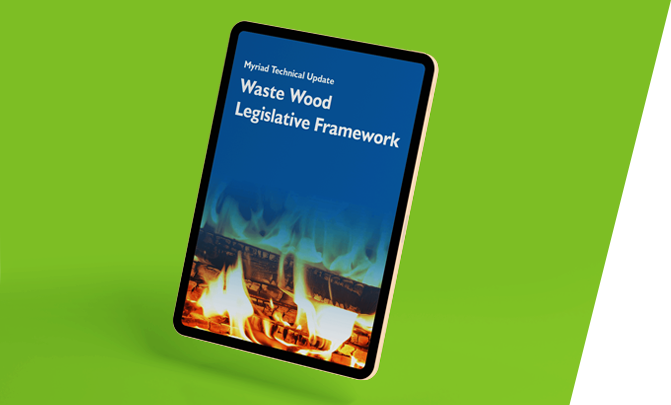Difference Between Biomass Fuels
I need to select a boiler type:
When would I choose a wood CHIP boiler?
When would I choose a wood PELLET boiler?
| Typically you would select WOOD CHIPS when: | Typically you would select WOOD PELLETS when: |
|---|---|
| there is HIGH energy consumption by the site.eg. hotels, pools, spa, process heat, district heating | there is LOW energy consumption by the siteeg. winter space heating only |
| there is lots of space available on site | there are limitations on fuel store size |
| there is no limitation on size of delivery vehicles | there is a limit on the frequency of deliveries and type of delivery vehicles |
| the site heat demand >300kW | the site heat demand <300kW |
Woodchip Biomass Fuel
Wood chips are small pieces of wood that have been cut to small pieces to allow the fuel to be ‘metered’ into the boiler in a controlled way.
Chips have a low density so are not well suited for haulage overly long distances. Typically 50 miles is used as a maximum transport distance, although large vehicles can travel further.
Chips must be ‘tipped’ from the delivery vehicle or offloaded from a large ‘walking floor’ vehicle. This does create some chip store design challenges which can be overcome, but the store will be much higher cost that an equivalent size wood pellet store.
Each boiler is designed around a particular fuel size. The current standard governing fuel particle size is EN 17225-4, and covers chips from 3.15mm in length to 200mm but it is common for chips to be much larger than this, even over 350mm in length. If the chip size specification is not matched to the boiler, then there can be problems with ‘bridging’ or blocking of the fuel feed system.
The moisture of the chips is also characterised within the ISO standard. Typically, wood chips are sold as M25 (less than 25% water content), M30, M35, M40 or M50. As with the size, it is important to understand the maximum water content that your boiler can accept. If the fuel is too wet then there will be problems with tarring, incomplete combustion and most likely the boiler will display a fault and stop as it cannot burn the wet fuel. Wet fuel boilers are available, so please make contact if this is a requirement.
Finally, the chemical constituents present in the wood are also governed by the standard. For virgin, clean, wood these are all acceptable but if the wood is contaminated in any way with paint, glues etc then the fuel will need to be assessed against the regulations before burning it.
Benefits of Woodchip Biomass Fuel
- Cheaper per kWh then pellets and logs
- More locally obtainable and can be from several sources (very often the reason for installing a wood chip boiler is availability of local, cheap fuel)
- Chip your own wood from managed woodland after preparation
- More likely to have a beneficial impact on the local economy

Wood Pellet Biomass Fuel
Wood pellets are made up of sawdust or fine shavings of wood extruded under pressure so that the wood resin binds the material into cylindrical shapes between 6mm and 10mm in diameter. Typically, diameter 6mm pellets are used in the UK for domestic and commercial boilers.
Pellets have a density 3x that of chips so are well suited for haulage over longer distances. Due to their high level of uniformity, they can be ‘blown’ into the fuel store which makes the design and cost of the store much cheaper than wood chip stores.
No artificial chemicals are added to wood pellets, as with chips their constituents are governed by the ISO standard, 17225- 2 for wood pellets.
Benefits of Wood Pellet Biomass Fuel
- High energy density so less storage space required
- Pellet stores can be either inside or outside at ground level
- The uniformity of the pellets means they can be blown from the delivery vehicle into the store over quite long distances
- Less variation in moisture content and physical form
- Can also be delivered and stored in bags for hand-feeding options

Logs or Briquettes Biomass Fuel
Wood logs and briquettes (also called heat logs) are a type of wood fuel made from dry compressed biomass. They can be made from a variety of materials, including sawdust, wood bark, coffee grinds, rice husks, and peat but most of the products sold in the UK are wood based.
Benefits of Wood Briquettes Biomass Fuel
- For residential stoves and log boilers
- Chimney and flue friendly
- Environmentally friendly
- Odourless













